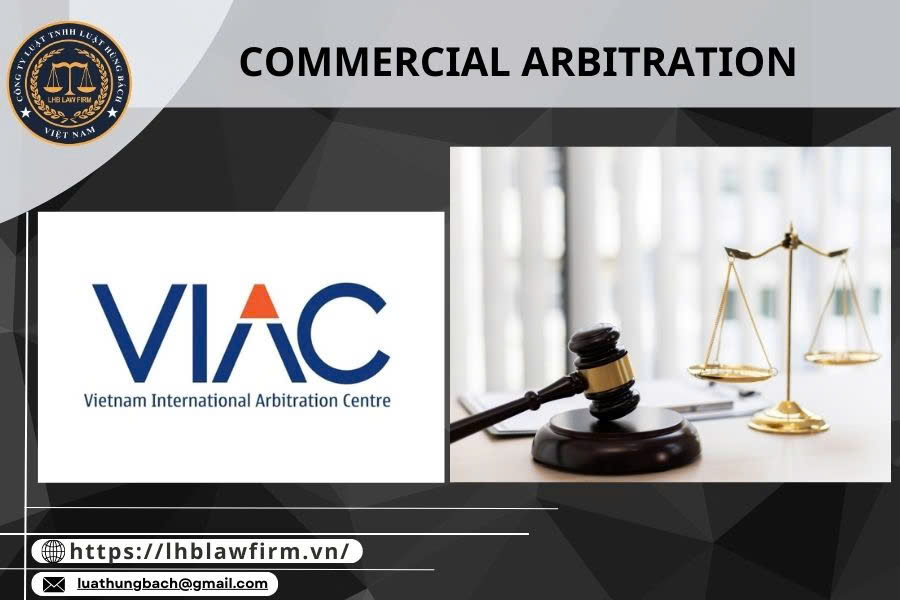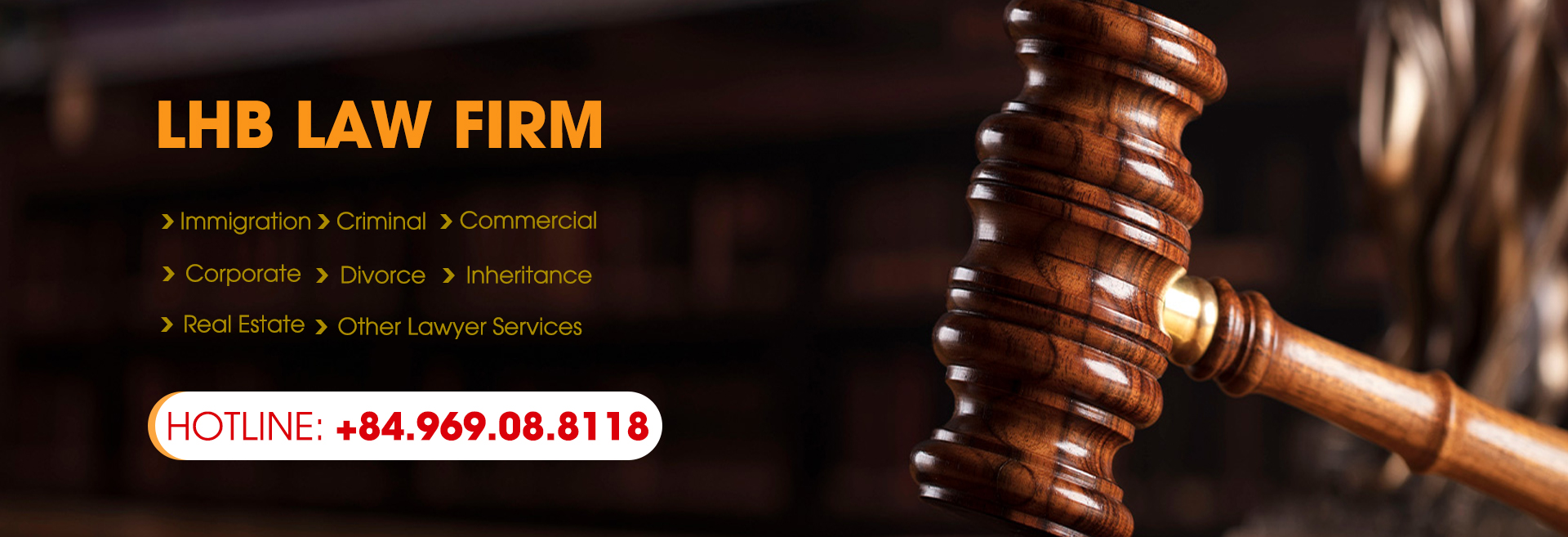Commercial Arbitration Dispute Resolution is a legal method that allows disputing parties to resolve conflicts quickly and efficiently through professional arbitrators. However, many people are still unfamiliar with this procedure. Join LHB Law Firm to explore the procedures for resolving commercial disputes in Vietnamese courts. If you need commercial legal services, please contact LHB Law Firm at hotline: +84.969.088.118 (Zalo).
Conditions for Dispute Resolution at an Arbitration Center
For a dispute to be resolved at an arbitration center, the following conditions must be met:
Valid Arbitration Agreement
- Arbitration Agreement: The disputing parties must have a clear and legally valid arbitration agreement established in writing. This agreement may be an arbitration clause within a contract or a separate agreement.
- Written Form: According to the Vietnamese Law on Commercial Arbitration, the arbitration agreement must be in written form. Accepted forms include correspondence, telegraph, fax, email, or other recognized electronic communication methods.
Arbitrator’s Jurisdiction
- Jurisdiction to Resolve Disputes: Arbitrators only have jurisdiction to resolve disputes that the parties have explicitly agreed to submit to arbitration. This includes disputes arising from commercial activities and other disputes permitted by law.
- Types of Disputes Eligible for Arbitration: Arbitration can handle commercial disputes between economic organizations, businesses, and individuals with business registration. Disputes related to personal rights, family matters, marriage, or those that are legally required to be resolved by a court cannot be handled through arbitration.
Disputes Within the Scope of Arbitration Center Resolution
- Scope of Resolution: Disputes submitted to the arbitration center must fall within the scope of arbitration as defined by law. This includes disputes related to commercial contracts, sales of goods, services, finance, investment, construction, and similar matters.
- Exclusion of Public Interest Disputes: Disputes involving public interests—such as land disputes, public assets, or other issues that must legally be resolved by a court or another competent authority—cannot be submitted to arbitration.
If the above conditions are met, the dispute may be resolved at the arbitration center, and the arbitration award will be binding on the parties involved.
Procedure for Resolving Disputes by Arbitration in Vietnam
The arbitration dispute resolution process in Vietnam generally includes the following steps:
Filing a Statement of Claim
- Statement of Claim: The party initiating the dispute (claimant) submits a statement of claim to the arbitration center specified in the contract or arbitration agreement. This statement should clearly identify the parties involved, the nature of the dispute, the relief sought, and the legal basis for the claim.
- Supporting Evidence: The claim statement is typically submitted with relevant documents and evidence to support the claimant’s case.
Case Acceptance
- Arbitration Center: Upon receiving the statement of claim, the arbitration center reviews the submission and accepts the case if it falls within the jurisdiction of arbitration.
- Notice of Case Acceptance: The arbitration center sends a notice of case acceptance to the respondent (the party being sued) and requests them to submit a response or an opinion on the claimant’s request within a specified period.
Formation of the Arbitral Tribunal
- Selection of Arbitrators: Parties may select arbitrators independently or request that the arbitration center appoint arbitrators based on the arbitration agreement or the center’s rules.
- Arbitral Tribunal: The tribunal typically consists of one or three arbitrators, depending on the parties’ agreement. If there is no agreement, the arbitration center determines the number of arbitrators.
Preliminary Hearing
- Initial Meeting: The arbitral tribunal holds an initial meeting to review preliminary issues, such as the tribunal’s jurisdiction, the parties’ claims, and other procedural matters.
- Planning: The tribunal and the parties may agree on a schedule for hearings, methods of evidence collection, and other details relating to the dispute resolution process.
Evidence Collection and Review
- Presentation of Evidence: Each party presents evidence, relevant documents, and arguments at the hearings organized by the arbitral tribunal.
- Review by Tribunal: The tribunal reviews and assesses the evidence and documents presented to reach an informed decision.
Hearing Proceedings
- Formal Hearings: The tribunal conducts formal hearings where parties present their viewpoints, evidence, and arguments. Depending on the circumstances, hearings may be public or confidential based on the parties’ request or arbitration rules.
- Record Keeping: Minutes are kept for each hearing session, and these records hold legal validity.
Arbitral Award
- Final Award: After reviewing all relevant issues, the arbitral tribunal issues a final award. This award is binding and non-appealable, except in special cases, such as instances of invalidity.
- Distribution of the Award: The arbitral award is sent to the parties within the stipulated timeframe.
Enforcement of the Award
- Voluntary Compliance: Parties are expected to comply with the arbitral award voluntarily. If a party does not comply, the other party may request enforcement by a competent court.
- Recognition and Enforcement Abroad: If an arbitral award is rendered in Vietnam but needs to be enforced abroad, it can be recognized and enforced under the 1958 New York Convention on the Recognition and Enforcement of Foreign Arbitral Awards.

Documents for Resolving Commercial Arbitration Disputes
The documents for resolving commercial arbitration disputes are a collection of materials, evidence, and related documents submitted and used during the dispute resolution process at the arbitration center. Below are the main components typically found in the file for resolving commercial arbitration disputes:
Complaint
- Content: The complaint (also known as the arbitration request) is prepared by the claimant. It clearly states the basic information about the dispute, specific requests, and the legal grounds the claimant uses to request arbitration for dispute resolution.
- Required Information: The complaint typically includes information about the parties involved in the dispute (name, address, contact number), the subject of the dispute, the arbitration agreement, and the specific requests of the claimant.
Arbitration Agreement
- Copy of the Agreement: A copy of the arbitration agreement between the parties. This may be an arbitration clause in the main contract or a separate agreement.
- Content: The arbitration agreement must clearly state the parties’ consent to submit the dispute for arbitration, specifying the venue, language, applicable arbitration rules, and other related issues.
Evidence
- Documentary Evidence: This includes contracts, invoices, receipts, correspondence, emails, notices, and other documents related to the dispute.
- Physical Evidence: If any, this includes items, goods, or any other physical objects related to the dispute.
- Witness Evidence: Testimonies or recorded statements from witnesses, if available, related to the case.
Defendant’s Response
- Content: The defendant may submit a response to the claimant’s request, outlining their viewpoint on the dispute, rebuttal evidence, and legal arguments.
- Submission Deadline: The response must be submitted within the time frame set by the arbitration center after the defendant receives notification of the case.
Statements from the Parties
- Summary of the Dispute: Each party may submit a summary of the case, including legal arguments, evidence analysis, and specific requests to the arbitral tribunal.
- Updating Information: If necessary, the parties may submit additional statements or update information during the arbitration process.
Minutes of Meetings
- Meeting Minutes: Every meeting between the arbitral tribunal and the parties involved is recorded in the minutes. The minutes document the discussions, temporary decisions, and issues to be addressed.
- Procedural Information: The minutes also record procedural matters such as the selection of arbitrators, scheduling of hearings, and other important decisions of the arbitral tribunal.
Arbitration Award
- Final Award: The written decision from the arbitral tribunal after considering all the evidence, documents, and arguments from the parties.
- Resolution of Requests: The award will include the tribunal’s decision on the specific requests of the parties, obligations to be fulfilled, and any compensation if applicable.
Other Documents
- Correspondence, Notices: Any correspondence or notices between the parties and the arbitration center related to the dispute resolution must be kept in the file.
- Supplementary Documents: Any additional documents submitted by the parties during the arbitration process, including expert opinions, audit reports, or other related materials.
Arbitration Fees for Dispute Resolution at the Arbitration Center
Arbitration fees, also known as arbitration costs, are the expenses that the parties must pay when using the dispute resolution services of an arbitration center. These fees may vary depending on the specific arbitration center, the value of the dispute, and other factors. Below are the main components of arbitration fees at the arbitration center:
Filing Fees (Complaint Filing Fees)
- Filing Fee: This is the first fee that the claimant must pay when submitting a complaint to the arbitration center. This fee is typically a fixed amount and does not depend on the value of the dispute.
- Fee Amount: The filing fee may vary depending on the arbitration center and the type of dispute. However, it is generally not very high.
Arbitration Fees
- Arbitration Fee: This is the main fee, covering the costs of the arbitration panel’s activities and the support services provided during the dispute resolution process.
- Calculation: Arbitration fees are usually based on the value of the dispute. Arbitration centers typically have clear fee schedules that specify the arbitration fee corresponding to different dispute values.
- Minimum and Maximum Fees: Some arbitration centers set minimum and maximum fees to ensure fairness in the fee collection process.
Administrative Fees
- Administrative Fee: This fee covers the management, operation, and administrative activities of the arbitration center.
- Fee Amount: The administrative fee can either be a fixed amount or a percentage of the value of the dispute, depending on the regulations of the individual arbitration center.
Arbitrator Fees
- Arbitrator Fees: These are the fees paid to the arbitrators participating in the dispute resolution process. This fee may be charged separately for each arbitrator or combined into the total arbitration fee.
- Nature of the Fee: Arbitrator fees may be based on the number of hours worked or be a fixed amount, depending on the prior agreement between the parties and the arbitration center.
Lawyers in Dispute Resolution at an Arbitration Center
Lawyers play a crucial role in the dispute resolution process at an arbitration center. Below are some of the key roles and responsibilities of lawyers in this process:
Legal Advice and Strategy
- Assessing the Situation: Lawyers help clients assess the legal situation, identify the strengths and weaknesses of the dispute, and provide advice on the best approach.
- Dispute Resolution Strategy: Lawyers will develop a strategy based on the client’s objectives, including options for negotiation, mediation, and preparation for the arbitration process.
Drafting and Filing Documents
- Drafting the Complaint: Lawyers will draft the complaint or objection. They ensure that the documents meet all legal requirements and clearly represent the client’s position.
- Preparing Evidence: Lawyers assist clients in gathering, preparing, and submitting necessary evidence to support their arguments before the arbitration panel.
Representation at Arbitration Hearings
- Attending Hearings: Lawyers will represent the client in all arbitration hearings, from preparatory meetings to official hearings. They will present legal arguments, respond to the opposing party, and protect the client’s interests.
- Counter-arguments and Rebuttals: Lawyers will counter the opposing party’s arguments and attempt to dismiss any evidence or claims made by the opposing side if they are unfounded.
Negotiation and Mediation
- Negotiation: In many cases, lawyers will engage in negotiation with the opposing party to find a resolution or settlement before the arbitration decision is made.
- Mediator Role: If necessary, lawyers may act as mediators or provide counsel to the client during the official mediation process.
Preparing and Reviewing the Arbitration Award
- Analyzing the Award: After the arbitration panel issues its decision, lawyers will thoroughly analyze the award, considering its legality and the legal implications for the client.
- Post-Award Advice: Lawyers will advise clients on the next steps after receiving the award, including the possibility of enforcement or other legal measures if required.
Enforcement of the Arbitration Award
- Enforcing the Award: Lawyers assist clients in seeking court enforcement of the arbitration award if the losing party fails to voluntarily comply with the decision.
- Recognition of the Award Abroad: If necessary, lawyers may assist clients in requesting the recognition and enforcement of the arbitration award in other countries under the New York Convention of 1958.
Lawyer’s Fees for Dispute Resolution Outside the Court
Fee Schedule for Lawyers Handling Disputes Outside of Court
| No |
Services |
Fee |
| 1 |
Receiving information and guidance on legal procedures from the lawyer. |
Free |
| 2 |
The lawyer provides consultation either in person or over the phone. |
50 USD/ hour |
| 3 |
The lawyer provides consultation in writing. |
From 100 USD |
| 4 |
Drafting a lawsuit petition and a statement of self-defense.
|
From 100/page USD |
| 5 |
Representing in negotiations and discussions to resolve disputes. |
From 1,000 USD + a percentage of the disputed amount. |
| 6 |
Participating in dispute resolution at the Mediation Center. |
Agreement |
| 7 |
Participating in proceedings to resolve disputes at the Arbitration Center or the People’s Court. |
Agreement. |
| 8 |
Requesting the enforcement of judgments and decisions in Vietnam. |
Agreement. |
(1 USD = 25.465.000 VND according to the exchange rate of Vietcombank on 02/7/2024)
In case you need legal advice or immediate dispute resolution, you can contact: +84.969.088.118 (Zalo) for assistance.


 Tiếng Việt
Tiếng Việt 中文 (中国)
中文 (中国) 한국어
한국어 日本語
日本語


